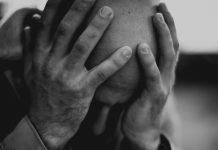It is often said that the choices we make repeatedly determine our destiny. Other people’s choices that touch our lives in an unfortunate way are seldom discussed. The changes that defy them both are among the most impressive, and Jesse Thistle’s story confirms this.
Jesse was born in Canada in the 1970s and from early on, his life was not easy. His mother, Blanche, came from a Canadian Aboriginal family and her teen years were just over when Jesse was born. His father, Sonny, was a young drug addict who had run away from home because of his problems with the law. Jesse spent the first few years in his mother’s care, and those were his quietest years: he was loved, had a bed to sleep in, and had something to eat. When he was just three years old, he and his two older brothers were taken in by Sonny, who had lied to their mother about having job and becoming a responsible person.
Because she was working, studying, and looking after the three of them, Blanche agreed to leave the boys with him for a few months. Sonny didn’t really have a job, and his habits made life a nightmare for the children, all under the age of six. They were left alone in the apartment for days, without food. They slept on piles of dirty laundry and had been taught by their father how to beg, steal from shops, and roll cigarettes from stubs found on the street. Neighbours alerted social services, and after a few months in the orphanage they ended up in the care of their paternal grandparents.
No one called his mother, because the natives were considered “unclean” and unsuitable parents. In those years, thousands of Indigenous children were cared for by social services and quickly placed in the families of white Canadians, who were considered more suitable to raise a child.
Their grandparents were very strict people, and they raised the boys as they knew best. Their grandfather would often beat them when they were wrong to correct them. Although they loved them, the grandparents forbade their mother from visiting them. The boys remembered their origins, and the older brother sometimes told them about the summer they slept in a tipi (a traditional Canadian Aboriginal tent). They were also aware of their origins because of their appearance. This was also the reason they repeatedly suffered beatings from their classmates.
The desire to fit in and the hatred he felt for his mother, who he thought had left them, made Jesse hide his origins, and pretend to be Italian.
In his father’s footsteps
At school, Jesse was always ready to pick a fight, he had bad grades, and was not able to learn to read or write. When he got to high school, he joined a gang, and things spiralled down. He started drinking, doing drugs, and was soon kicked out of his grandparents’ house, who did not want to go through the ordeal they had gone through with his father again.
For a while, he stayed with his older brother, Josh, who had become a police officer, but was kicked out when Josh found him using drugs in the house. When he was just 20 years old, Jesse was homeless. He then slept in a car he had parked on the outskirts of Vancouver, in a place where several homeless people gathered, most of them Canadian Indians, just like him. Then he sold his car, and everything he had, to get drugs.
Soon after that, a friend offered him his first dose of pure cocaine and from that moment, his life became a race towards the next dose. He slept wherever he could, sometimes with various friends he had made through their common addiction.
At the age of 23, at a party, some foreigners offered him pizza and their clothes in exchange for finding a means of transport to travel to another city. Drunk and high, he got excited about the offer and helped them.
After the party, Jesse went to his uncle’s house and saw on the news that two young men had killed a taxi driver the night before. Their description coincided with the two strangers at the party, and he was wearing their clothes. He realized they wanted to frame him for the murder and panicked. He wanted to run and hide. Instead, he went to the police and told them everything. The two were caught, and Jesse became an informant. Keeping quiet about illegalities was a law of the street, so, soon, all his friends left him. Some even tried to kill him.
An evening as a new beginning
One night, Jesse discovered that he had lost the key to his brother Jerry’s apartment, who tried to help Jesse from time to time. He tried to enter through the apartment window but fell from the third floor of the building. He broke his heel and both his wrists. The doctors couldn’t believe he was still alive.
Because he was not careful enough to go to the check-ups after being discharged from the hospital, his wounds soon became infected. When his foot turned black and his nails began to fall out, he realized that it was very serious. Doctors told him they might have to amputate his leg, because the infection could reach his heart and brain. He ran away from the hospital when he heard the news. In a few days, not even the drugs he was taking in large quantities managed to relieve his pain.
He knew he needed help, and prison was the perfect place to receive care. He had been arrested several times over the years and he knew that there he at least had a place to sleep, food, and most importantly, that his leg would be treated. But it was also the place where he had to make do without drugs.
He robbed a store to get arrested, but was scared and did not wait for the police to come and catch him. He hid in a dumpster, and while he was hiding there, he thought how he was not even capable of committing a robbery. After some more days of drug-induced pain and hallucinations, Jesse surrendered.
His leg was treated in prison and, surprisingly, he recovered. However, no one cared about his addiction, so he had terrible seizures due to withdrawal. He tried again to learn to read and write. Upon his release from prison, he went to a rehabilitation centre and continued his recovery process. He stayed up late at night and read encyclopaedias to forget about the drugs. He took etiquette classes. For the first time in many years, he felt good in his skin.
When love heals the past and opens up the future
The escape from drugs did not come easily, so he soon relapsed. With his hands dipped to his elbows in the ice-cold water of the public fountain where people tossed coins for good luck, at 32, Jesse was a deplorable sight to the policeman who arrested him. He re-entered the rehabilitation centre, where he received an email from a lady asking him to call her. It was his mother, whom he had only seen a few times since her boys had been taken from her. The telephone conversation was so overwhelming that he felt the need to hang up a few times.
“I was just terrified of being rejected and terrified of love,” he says. “But it was a beautiful conversation – it was like a rain quenching the prairies after a long drought, that’s what it felt like.”
He soon received news of his grandmother, who was dying and wanted to see him. He promised his grandmother that he would finish the rehabilitation and that he would go to college.
A childhood friend, Lucie, wrote to him to offer her condolences for his grandmother’s death, and a relationship began that still strikes Jesse as amazing. “I thought I’d won the lottery – I was just a street guy, I don’t know what she saw in me, but when someone loves and trusts you that way, you just want to give it your all.” When he left the rehab centre, Lucie got him to stay with her and helped him find a job. Two and a half years later, they got married.
“No one’s all virtuous and pristine and pure — and nobody’s totally evil and deserves not to be forgiven. My life is an expression of that.”
That same year, at the age of 35, Jesse entered college. He was the only one that had a paper and pen with him, among dozens of other students with laptops and phones. Despite his fear, he had a promise to keep. A second-year college subject brought him closer to his origins, which he became fascinated with. He went to Saskatchewan, the province where he was born, to see his mother again and to meet his relatives.
Today, Jesse is an assistant professor and the author of a successful book[1] about his change. For his PhD he is doing research on the cases of Aboriginal people who end up homeless because of the unjust policies of the Canadian state. He is grateful for every little proof of love that kept him alive, for the love of his grandmother, mother, and Lucie, who helped him make the change he wanted so much. “No one’s all virtuous and pristine and pure — and nobody’s totally evil and deserves not to be forgiven. My life is an expression of that.”[2]
Andreea Irimia believes that life stories have the power to transform us. This is because the images born of the almost unreal realities that some of us have experienced penetrate our souls and respond convincingly to some of our most persistent doubts.




















